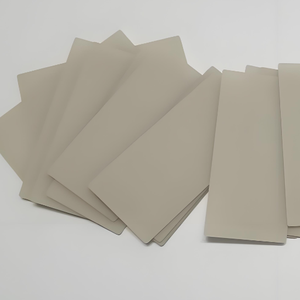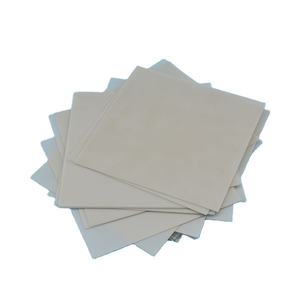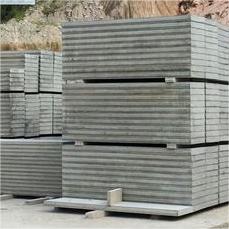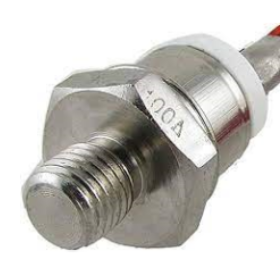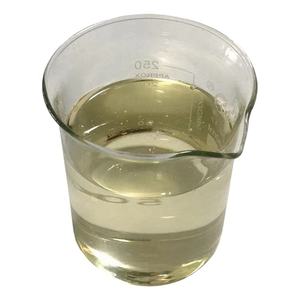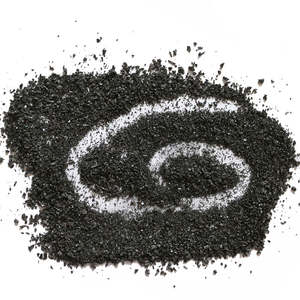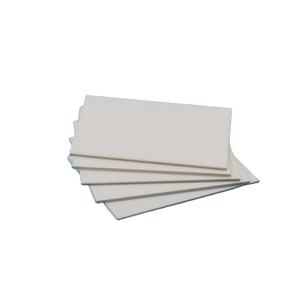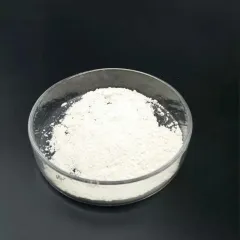1. Material Scientific Research and Structural Characteristic
1.1 Crystal Structure and Chemical Stability
(Aluminum Nitride Ceramic Substrates)
Light weight aluminum nitride (AlN) is a vast bandgap semiconductor ceramic with a hexagonal wurtzite crystal structure, composed of alternating layers of light weight aluminum and nitrogen atoms adhered with solid covalent interactions.
This durable atomic plan grants AlN with phenomenal thermal security, maintaining architectural stability up to 2200 ° C in inert atmospheres and withstanding decomposition under severe thermal biking.
Unlike alumina (Al two O THREE), AlN is chemically inert to thaw metals and several responsive gases, making it suitable for harsh atmospheres such as semiconductor handling chambers and high-temperature heating systems.
Its high resistance to oxidation– creating only a slim protective Al two O ₃ layer at surface area upon direct exposure to air– makes certain long-lasting integrity without considerable degradation of bulk buildings.
Furthermore, AlN displays superb electric insulation with a resistivity going beyond 10 ¹⁴ Ω · centimeters and a dielectric strength over 30 kV/mm, vital for high-voltage applications.
1.2 Thermal Conductivity and Digital Features
One of the most specifying attribute of aluminum nitride is its outstanding thermal conductivity, normally varying from 140 to 180 W/(m · K )for commercial-grade substrates– over five times more than that of alumina (≈ 30 W/(m · K)).
This performance originates from the low atomic mass of nitrogen and aluminum, integrated with solid bonding and minimal point defects, which enable reliable phonon transportation through the latticework.
Nonetheless, oxygen pollutants are specifically harmful; even trace quantities (above 100 ppm) alternative to nitrogen websites, developing light weight aluminum vacancies and spreading phonons, consequently considerably decreasing thermal conductivity.
High-purity AlN powders manufactured using carbothermal reduction or direct nitridation are necessary to achieve optimal warmth dissipation.
Regardless of being an electric insulator, AlN’s piezoelectric and pyroelectric buildings make it beneficial in sensing units and acoustic wave tools, while its large bandgap (~ 6.2 eV) supports procedure in high-power and high-frequency electronic systems.
2. Construction Processes and Production Difficulties
( Aluminum Nitride Ceramic Substrates)
2.1 Powder Synthesis and Sintering Techniques
Making high-performance AlN substrates starts with the synthesis of ultra-fine, high-purity powder, typically accomplished through reactions such as Al Two O TWO + 3C + N ₂ → 2AlN + 3CO (carbothermal decrease) or direct nitridation of light weight aluminum metal: 2Al + N ₂ → 2AlN.
The resulting powder should be meticulously grated and doped with sintering aids like Y TWO O ₃, CaO, or unusual planet oxides to advertise densification at temperatures between 1700 ° C and 1900 ° C under nitrogen ambience.
These ingredients develop transient liquid stages that enhance grain limit diffusion, allowing full densification (> 99% academic thickness) while minimizing oxygen contamination.
Post-sintering annealing in carbon-rich settings can additionally minimize oxygen web content by eliminating intergranular oxides, consequently bring back peak thermal conductivity.
Achieving consistent microstructure with controlled grain size is essential to stabilize mechanical stamina, thermal performance, and manufacturability.
2.2 Substrate Shaping and Metallization
Once sintered, AlN porcelains are precision-ground and lapped to meet limited dimensional tolerances needed for electronic product packaging, frequently down to micrometer-level flatness.
Through-hole boring, laser cutting, and surface area patterning allow integration right into multilayer bundles and crossbreed circuits.
A critical action in substratum fabrication is metallization– the application of conductive layers (usually tungsten, molybdenum, or copper) through processes such as thick-film printing, thin-film sputtering, or direct bonding of copper (DBC).
For DBC, copper aluminum foils are bound to AlN surface areas at elevated temperatures in a controlled ambience, developing a strong interface suitable for high-current applications.
Alternative strategies like active metal brazing (AMB) use titanium-containing solders to improve adhesion and thermal fatigue resistance, especially under duplicated power biking.
Correct interfacial engineering makes certain low thermal resistance and high mechanical integrity in operating devices.
3. Performance Advantages in Electronic Solution
3.1 Thermal Monitoring in Power Electronics
AlN substrates excel in managing warm created by high-power semiconductor tools such as IGBTs, MOSFETs, and RF amplifiers made use of in electrical lorries, renewable resource inverters, and telecommunications framework.
Efficient heat extraction stops localized hotspots, decreases thermal stress and anxiety, and expands tool lifetime by reducing electromigration and delamination threats.
Compared to standard Al ₂ O six substrates, AlN enables smaller bundle dimensions and higher power densities due to its remarkable thermal conductivity, allowing designers to press efficiency boundaries without compromising integrity.
In LED lighting and laser diodes, where joint temperature level straight influences performance and shade stability, AlN substratums dramatically enhance luminescent output and functional lifespan.
Its coefficient of thermal growth (CTE ≈ 4.5 ppm/K) also carefully matches that of silicon (3.5– 4 ppm/K) and gallium nitride (GaN, ~ 5.6 ppm/K), lessening thermo-mechanical stress and anxiety throughout thermal cycling.
3.2 Electric and Mechanical Integrity
Beyond thermal efficiency, AlN uses reduced dielectric loss (tan δ < 0.0005) and stable permittivity (εᵣ ≈ 8.9) throughout a wide regularity range, making it suitable for high-frequency microwave and millimeter-wave circuits.
Its hermetic nature protects against dampness access, removing deterioration dangers in moist environments– a vital advantage over organic substratums.
Mechanically, AlN possesses high flexural stamina (300– 400 MPa) and firmness (HV ≈ 1200), guaranteeing resilience throughout handling, assembly, and area procedure.
These characteristics jointly add to enhanced system dependability, reduced failure rates, and reduced complete price of possession in mission-critical applications.
4. Applications and Future Technological Frontiers
4.1 Industrial, Automotive, and Protection Systems
AlN ceramic substrates are now conventional in advanced power modules for industrial electric motor drives, wind and solar inverters, and onboard chargers in electrical and hybrid vehicles.
In aerospace and defense, they support radar systems, digital warfare units, and satellite communications, where efficiency under extreme conditions is non-negotiable.
Clinical imaging tools, including X-ray generators and MRI systems, additionally take advantage of AlN’s radiation resistance and signal honesty.
As electrification patterns increase throughout transport and energy fields, need for AlN substrates continues to grow, driven by the need for compact, effective, and trusted power electronics.
4.2 Arising Integration and Lasting Advancement
Future developments concentrate on incorporating AlN into three-dimensional product packaging designs, embedded passive elements, and heterogeneous integration systems integrating Si, SiC, and GaN tools.
Study right into nanostructured AlN movies and single-crystal substratums aims to further increase thermal conductivity towards theoretical limitations (> 300 W/(m · K)) for next-generation quantum and optoelectronic gadgets.
Efforts to decrease manufacturing expenses via scalable powder synthesis, additive manufacturing of complex ceramic structures, and recycling of scrap AlN are acquiring momentum to improve sustainability.
Furthermore, modeling devices making use of limited element analysis (FEA) and artificial intelligence are being employed to maximize substrate design for details thermal and electrical tons.
Finally, aluminum nitride ceramic substratums represent a foundation innovation in modern electronics, distinctly bridging the void between electrical insulation and exceptional thermal conduction.
Their function in enabling high-efficiency, high-reliability power systems highlights their strategic relevance in the recurring development of digital and energy innovations.
5. Distributor
Advanced Ceramics founded on October 17, 2012, is a high-tech enterprise committed to the research and development, production, processing, sales and technical services of ceramic relative materials and products. Our products includes but not limited to Boron Carbide Ceramic Products, Boron Nitride Ceramic Products, Silicon Carbide Ceramic Products, Silicon Nitride Ceramic Products, Zirconium Dioxide Ceramic Products, etc. If you are interested, please feel free to contact us.
Tags: Aluminum Nitride Ceramic Substrates, aluminum nitride ceramic, aln aluminium nitride
All articles and pictures are from the Internet. If there are any copyright issues, please contact us in time to delete.
Inquiry us

